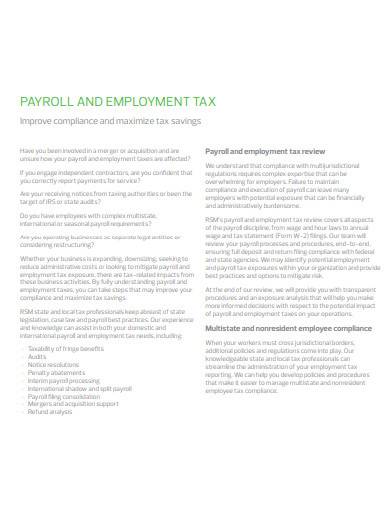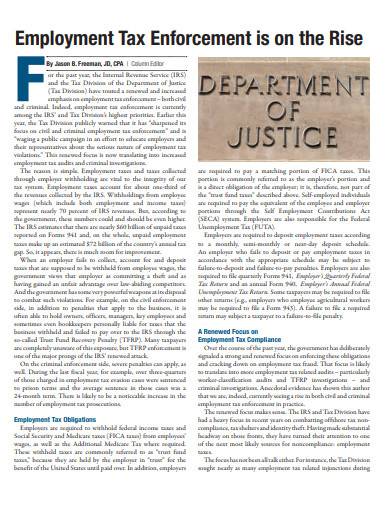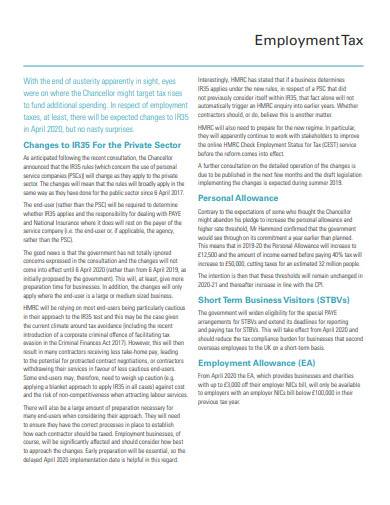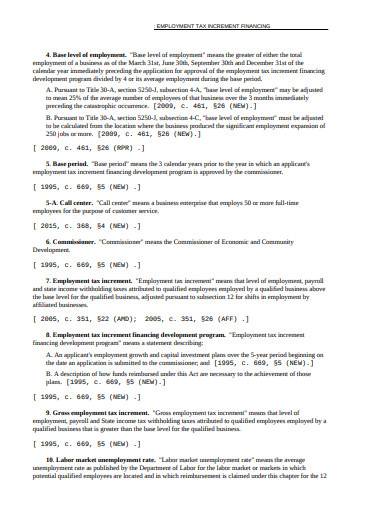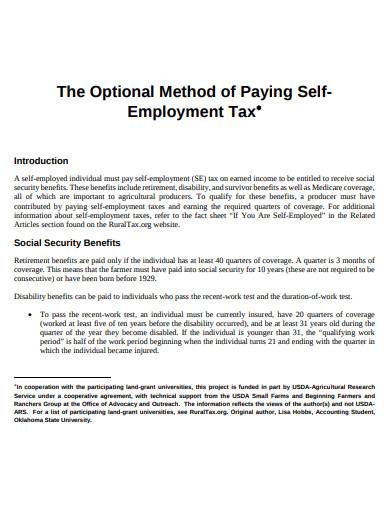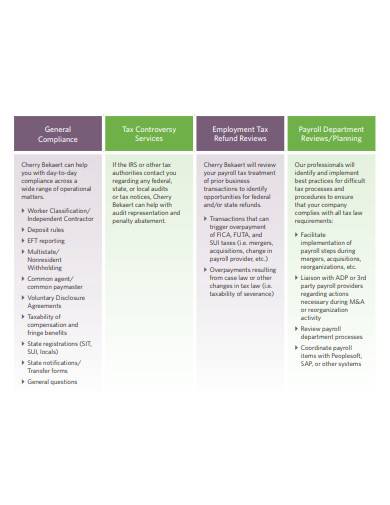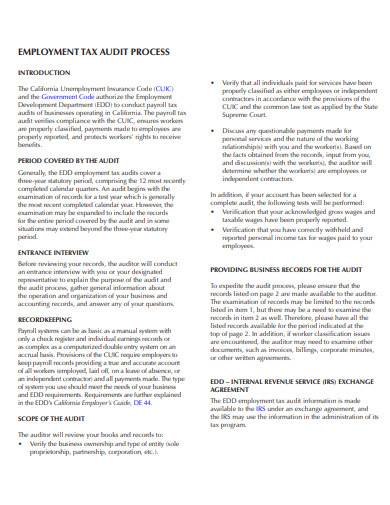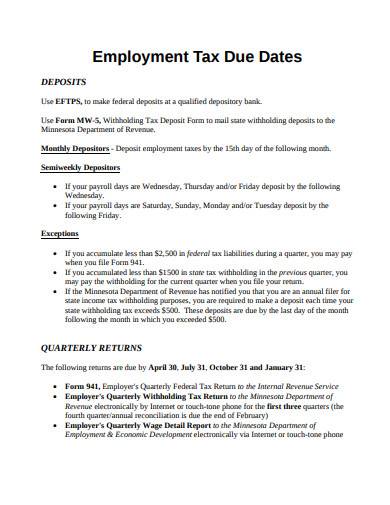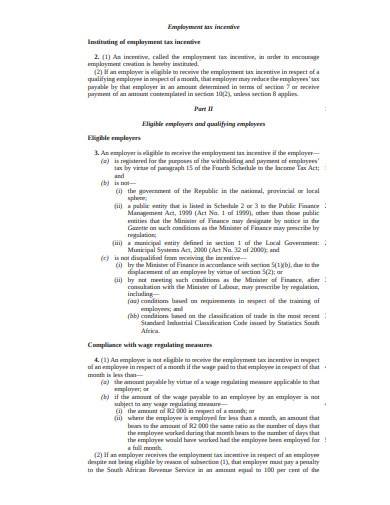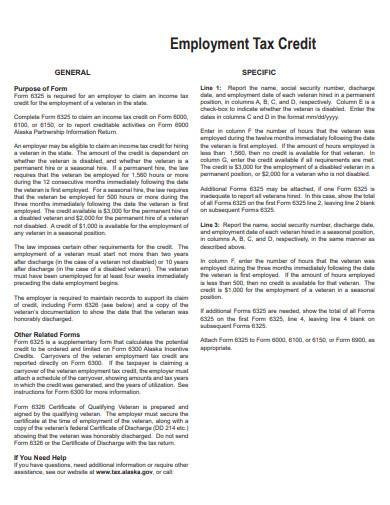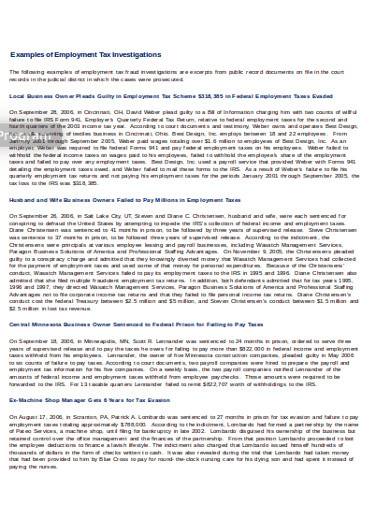To be a working adult means to be responsible in terms of keeping up with tax payments, specifically for employment taxes. But, it’s not only the payments to think about since there is also the paperwork to fulfill. Different employment tax forms will be necessary for varying tax and payment concerns. However, how can one know which type of document he must use? Well, then continue reading below to discover the various types of employment tax forms that you can use.
What Is an Employment Tax Form?
When you head to the IRS, you will most likely see people holding out forms and documents for submission. The paperwork that they’re holding and the records the IRS keeps are examples of tax forms. In connection to that, if your taxes are directly related to your employment, then the documents that you will have to prepare and submit will be employment tax forms. And, some of the details that you will have to disclose would include your job and income information and your tax identification numbers.
A Brief Background of Employment Taxes
Everything has a beginning, even your taxes! In specific, it all started back in 1816, or during the Civil War where people file income taxes to support war expenses. Well, luckily, we are no longer living in that era. In today’s generation, we are filing taxes for our country, the economy, and for our own future use. Also, interchanging the terms income tax and payroll tax as employment taxes are commonly done globally.
Apart from that, varying states also have different tax computations, laws, and requirements. There are even some states who don’t require income tax payments, such as the State of Alaska and Wyoming. On the one hand, different employment taxes are also present, including Social Security and Medicare Taxes. And, who’s eligible and required to pay employment taxes? Simple, anyone who’s employed and employing people. Also, employers have to pay an “unemployment tax” along with their other tax obligations.
Benefits of Using Employment Tax Forms
There are two main benefits of using employment tax forms. The first is that it helps in keeping the employed taxpayer’s information. Regardless of what form a taxpayer or the staff of the IRS uses, it will always have the taxpayer’s necessary details, such as his name and TIN. And, the other benefit is that it is an essential tool for documenting the transactions made concerning employment tax payments. This also includes the details of the payment requirements as well as due dates and other relevant pieces of information.
10+ Employment Tax Samples
If you don’t know what type of employment tax form you need, then don’t worry. Why? For, we have here various types of employment tax forms that you can utilize and use as a guide. Discover our sample and printable employment tax forms below:
1. Payroll and Employment Tax Sample
2. Employment Tax Enforcement Template
3. Basic Employment Tax Sample
4. Employment Tax Increment Financing Template
5. Self- Employment Tax Sample
6. Printable Employment Tax Sample
7. Employment Tax Audit Process Samples
8. Employment Tax Due Dates Template
9. Employment Tax Incentive Template
10. Employment Tax Credit Sample
11. Employment Tax Investigations in DOC
Various Types of Employment Tax Forms
There are many methods of finding employment tax forms, but one of the easiest and most efficient is by looking it up online. You can either go to the IRS’s website or download our fillable forms. And, don’t get intimated by its variations, for each transaction requires different documents. Read on below to know the types of forms you may need to use:
1. Employment Eligibility Verification Form
This is a type of document that both employers and employees must fill and submit to the IRS. What is it? Well, it’s intended to document the hiring of an individual. Work authorizations for the employee and verifying his identity are the reasons for the usage of this form.
2. Employment Wage and Tax Statement Form
Employers need to send this document to each of their employees and to the IRS on an annual basis. Its purpose is to inform the employee about his total wage and the taxes acquired from his pay.
3. U.S. Corporation Income Tax Return
Only companies that belong to the C corporations are the ones who need this type of form. It’s essential for declaring their income, losses, gains, and credits for determining their actual tax responsibilities.
4. Corrected Wage and Tax Statement Form
Mistakes are inevitable but should be entirely avoided, especially when filing documents to state agencies. So, if you observed that there are errors in the tax statement form that your employer gave, then you can request for a W-2c or a corrected wage and tax statement form. In it, you can indicate the previously reported data along with the corrected ones. It’s that simple! And, after completing the entries, you must submit it immediately back to your employer to begin the correction process.
Overall, employment tax forms are essential for a well-documented and smooth-flowing IRS transaction. But, do note that there are more than thirty varieties, so it’s best that before you head to the IRS, you must know which one suits your needs.
Related Posts
Weekly Schedule Samples & Templates
Contractual Agreement Samples & Templates
FREE 9+ Amazing Sample Church Bulletin Templates in PSD | PDF
Sample Business Card Templates
Sample Cashier Job Descriptions
Questionnaire Samples
FREE 10+ Sample HR Resource Templates in PDF
FREE 10+ HR Consulting Business Plan Samples in MS Word | Google Docs | Pages | PDF
FREE 49+ Sample Job Descriptions in PDF | MS Word
FREE 16+ Nonprofit Budget Samples in PDF | MS Word | Excel | Google Docs | Google Sheets | Numbers | Pages
FREE 13+ Academic Calendar Templates in Google Docs | MS Word | Pages | PDF
FREE 10+ How to Create an Executive Summary Samples in Google Docs | MS Word | Pages | PDF
FREE 23+ Sample Event Calendar Templates in PDF | MS Word | Google Docs | Apple Pages
Company Profile Samples
FREE 10+ Leadership Report Samples [ Development, Training, Camp ]

